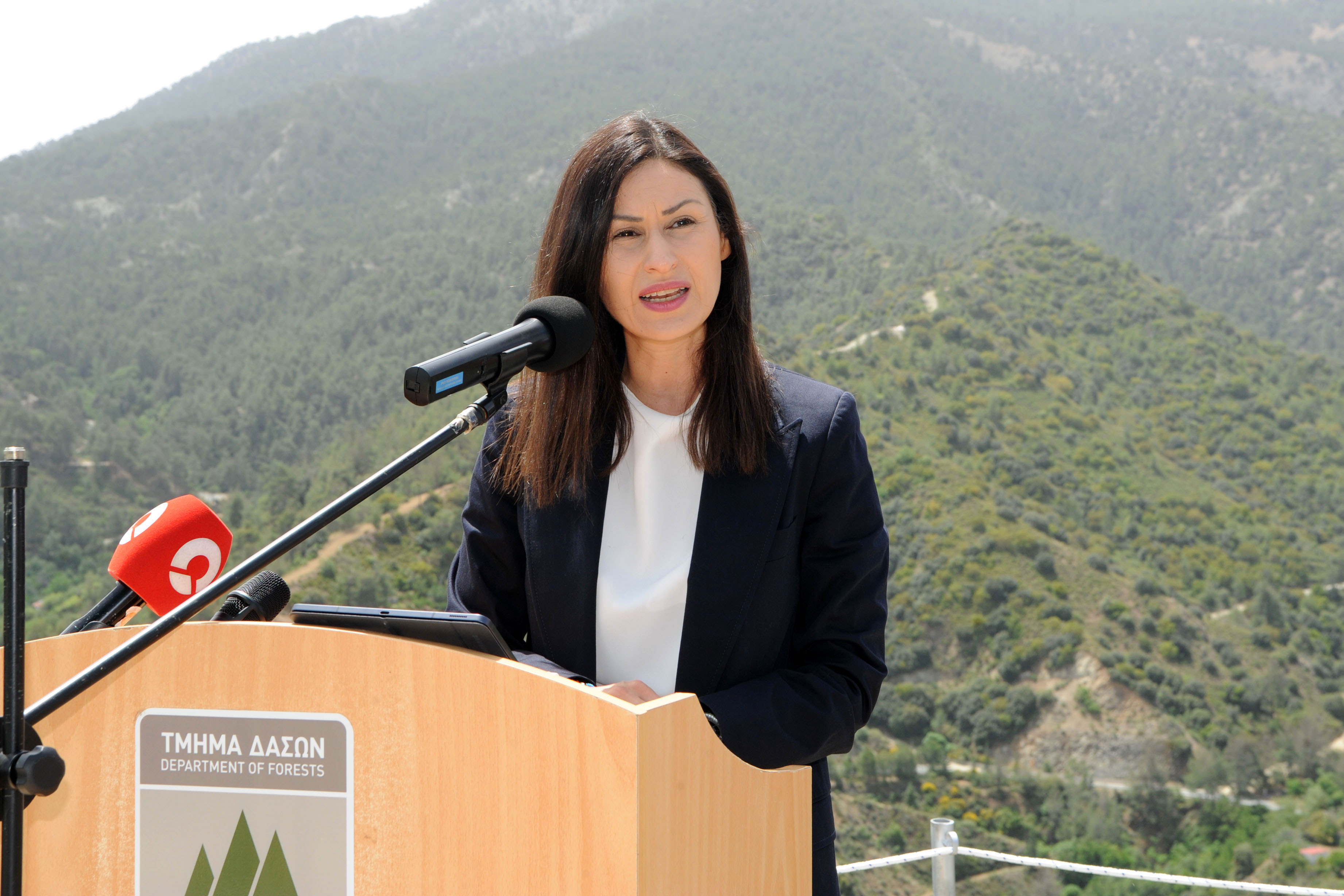Agriculture Minister Maria Panayiotou said on Sunday that there is a need to adjust policies as Cyprus is possibly its worst drought and heatwave in years.
In an interview with the Cyprus News Agency, Panayiotou also touched on the green transition and changes that need to be made in the agricultural sector.
She also discussed a September MED 9 summit hosted in Cyprus to discuss drought and efforts underway to address the heatwave.
The minister commented on the latest developments on firefighting, waste collection, and the issue of the creation of a Cyprus Food Safety Authority.
Asked about the problem of drought, the minister said that it has been a serious problem that Cyprus has been facing in recent years. She added that both last year and this year were among the worst since 1900, when the data was recorded.
Last year, she said, was the tenth worst year in terms of rainfall and the amounts in the dams demonstrate this.
“Although, there is a policy and strategy for water management, with the current data it needs to be updated and revised,” she said.
According to the minister, the national investment plan includes projects in excess of €1 billion which have been passed by cabinet and set priorities in irrigation and water supply.
She also mentioned the need to implement several infrastructures to ensure water sufficiency and decoupling from weather conditions in the irrigation sector.
These infrastructures, she added, are in the national investment plan, with some to be completed immediately and some at a later stage.
Drought and how the primary sector can cope with it is the subject of the MED 9 meeting that will take place in Cyprus between September 1-3, which will host the nine agriculture ministers of the Mediterranean European countries.
“Our aim is to create a common framework of actions and decisions so that together all nine Mediterranean countries facing common challenges can have coordinated actions and cooperation in this area,” she said.
Referring to the measures taken to deal with the prolonged heatwave in Cyprus, the minister noted the record temperatures recorded in June and July.
In the agricultural sector, she said that more than 50 areas and crops affected by the heatwave have already been announced for farmers to receive compensation through the Risk Management Fund. She added, however, that farmers should be given the opportunity to have a fair income and crops that can cope with these new conditions, through both the infrastructure and technologies of the Common Agricultural Policy (CAP).
Regarding cities, she said the creation of green roofs and coordination of tree planting are among the ministry’s priorities. She said the ministry will launch a pilot programme of green roofs and a subsidy framework will be set up for citizens as these roofs reduce the temperature in the house and help with the heat stress faced by cities.
She also said that the ministry wants to plan the tree plantations in a way that they have a nationwide distribution, covering the needs in both urban centres and forest areas and a specific plan is being worked out.
“The target of 100,000 that we have to plant every year is not a target that we just want to say we have, but we want to implement it through specific, numbered tree plantations,” she said.
She admitted that “we are behind in terms of this number” but said that there is no luxury “to get out of this plan”, since the heat wave is already here and there is a water problem.
Panayiotou also said that there are already research projects in collaboration with departments of the ministry to utilise and new methods for planting and adapting to new climate changes.
She said the planting season is around January – February and by then there should be coordination on the number and methods to be followed.







Click here to change your cookie preferences